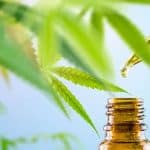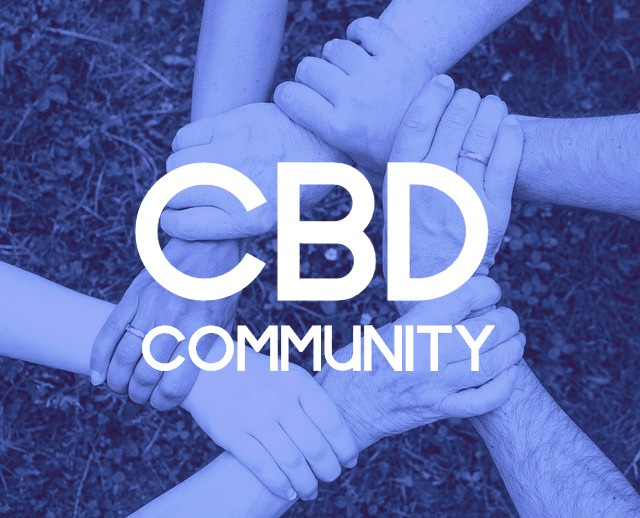Last updated on 7 September 2021
Addiction is defined as a disease by most medical associations. Like diabetes, cancer and heart disease, addiction is caused by a combination of behavioral, environmental and biological factors. Genetic risk factors account for about half of the likelihood that someone may struggle with addiction. The consequences of untreated addiction often include other physical and mental health disorders that require medical attention. If left untreated over time, addiction becomes more severe, disabling and life-threatening.
Most people don’t know this but, drug and alcohol addiction is actually a disease. It is a brain disease characterized by a physical and psychological dependence on drugs and alcohol, despite their harmful effects. Addicted persons are fully aware of their problem, but find it extremely hard to stop. The main cause of drug and alcohol addiction is said to be a prolonged abuse of the two substances. Drug abuse is triggered by varying reasons such as peer pressure, depression and the increasing availability of drugs. Drug addiction has also been described as a relapsing disease, as many patients often fall back into the pit of addiction if treatment is not effective.
In the United States, opioid addiction was declared a public health emergency by President Trump in 2017. It has since been dubbed the opioid crisis. In 2015, over 20,101 deaths were caused by prescription painkillers overdose. An additional 12,990 deaths were attributed to heroin overdoses. In 2016, The U.S Department of Health and Human Services recorded 42,000 deaths attributed to opioid overdoses. These are definitely sobering statistics.
Over the past few years, researchers have been studying Cannabidiol (CBD), a compound found in Cannabis which they believe might be a very effective treatment for substance addiction. This is despite the fact that the Drug Enforcement Administration (DEA) classifies it as a Schedule 1 drug, implying it is considered as having a high capacity for abuse. Nevertheless, 29 states have legalized the use of medical cannabis.
You might be wondering, how can a component found in a drug help with drug addiction? Well, it is believed that CBD has the ability to modify the neural pathways in an addict’s brain to help diminish cravings and withdrawal symptoms. Medical marijuana abuse could lead to cannabinoid hyperemesis syndrome, a condition that lacks timely diagnosis and appropriate treatment.
Why Use CBD to Treat Addiction?
It may come as a surprise, but CBD has already proved to be a successful cause of treatment for various other ailments. It has been recorded as being effective in controlling epileptic seizures, reducing inflammation and helping ease chronic pain. CBD has also been used to help reduce the effects of chemotherapy such as nausea for cancer patients.
Perhaps one of the main reasons as to why CBD works well as a treatment for addiction is because it is non-psychotropic. This means that unlike THC (tetrahydrocannabinol), which is the component that gives you a “high” when you consume cannabis, CBD offers you its health benefits without euphoric feelings. Interestingly enough, CBD has also been found to neutralize the psychotropic effects of THC. As indicated earlier, CBD works by modifying the neural pathways in an addict’s brain to reduce cravings and withdrawal symptoms. This means that addicts put on CBD treatment do not crave the drug and as such, are at low risk of a relapse.
Benefits of Using CBD to Treat Addiction
CBD offers an endless list of benefits as an addiction treatment. First, it helps reduce cravings for addicts, making it a great counter against relapse, even when addicts are exposed to triggers. This is a great advantage as 85% of recovering opioid and alcohol addicts1 are said to relapse within a year after treatment. It also helps in the reduction of withdrawal symptoms for opioid addicts.
Secondly, CBD has the ability to reduce the anxiety levels in opioid addicts. It is said to have therapeutic effects in opioid addicts, which reduces their anxiety levels consequently reducing the chance of them relapsing. Scientists have credited as having the ability to partially activate the 5HT1-A serotonin receptor in the brain, which explains its mood enhancing effects.
Lastly, unlike other drugs such as OxyContin and Vicodin, CBD is not addictive2
Related article: Can CBD Help You Quit Smoking?
Side Effects of Using CBD
Side-effects of CBD oil are rare, and not as severe as the ones caused by the conventional drugs used to treat addiction, some people may experience nausea, diarrhea or drowsiness. It is important to be informed, therefore we compiled a guide on possible CBD side-effects.
CBD Dosage for Addiction
Calculating the correct CBD dosage for addiction can be tricky. Therefore, we always recommend following the Step-Up approach, developed by Leinow and Birnbaum in their book CBD: A Patient’s Guide to Medicinal Cannabis 3.
To find out what the correct CBD dosage for you might be, visit our post on CBD dosage.
How Can I Use CBD to Treat Addiction?
CBD is currently being offered in different forms from oil, tablets to vapes and even edibles. CBD oil has been shown as being a preferred option for many people. However, it is best to choose the form that you feel most comfortable using.
Success Stories
An article by Men’s Health published the story of Che (not his real name), who suffered a neck injury. He was put on Oxytocin, which contains opioids, to help reduce pain after dislocating a disk in his spine. However, his doctor withdrew the prescription once he realized that Che had become addicted to it and was abusing it. Che found other ways to access the substance, leading to a seven-year-long battle with opioid addiction. Che tried smoking cannabis, but his cravings for an opioid persisted. He then tried CBD, which has since proved effective. He swears by his 33mg once daily capsule prescription, which he says has reduced his cravings entirely and returned his life to normalcy4
What is Research Saying About CBD for Addiction?
A recent study on CBD by Freidbert Weiss produced positive results on using CBD to treat addiction5. The study was conducted on rats with either conditioned cocaine or alcohol addiction. The rats were given a topical gel containing CBD daily for a week before being tested to see how they react to any of the common addiction relapse triggers.
The rats passed the tests, indicating they were less likely to relapse, even when provoked. Additionally, the rats that were on CBD displayed reduced anxiety and impulsivity- both characteristics of addiction. The research was more than successful in proving that CBD is an effective way of curing addiction.
In conclusion, without long-term drug relapse prevention treatment, an addict’s dream of attaining sobriety remains just that, a dream. CBD oil, however, offers addicts with the long-term solution they are in need of.
References
- Foster, L. (2019). Understanding Addiction Relapse. [online] EverydayHealth.com. Available at: https://www.everydayhealth.com/addiction/understanding-addiction-relapse.aspx. [↩]
- Expert Committee on Drug Dependence (2018). CANNABIDIOL (CBD). [online] World Health Organization. Available at: https://www.who.int/medicines/access/controlled-substances/CannabidiolCriticalReview.pdf [↩]
- Leinow,, L. and Birnbaum, J. (2017). CBD: A Patient’s Guide to Medicinal Cannabis. North Atlantic Books. [↩]
- Volpe, A. (2019). Is Marijuana the Key to Solving the Opioid Crisis?. [online] Men’s Health. Available at: https://www.menshealth.com/health/a19607404/marijuana-drug-addiction-cbd-opioid-cocaine-use/ [↩]
- Gonzalez-Cuevas, G., Martin-Fardon, R., Kerr, T., Stouffer, D., Parsons, L., Hammell, D., Banks, S., Stinchcomb, A. and Weiss, F. (2018). Unique treatment potential of cannabidiol for the prevention of relapse to drug use: preclinical proof of principle. Neuropsychopharmacology, 43(10), pp.2036-2045. [↩]
Author
With close to two decades of successful stint in the Media industry, I felt I was surely missing a piece in my life puzzle. I took a break and set out to seek the purpose of my life. I travelled, lived out of a suitcase, let things flow into life without resisting, and after five challenging years, I found my rhythm. I love to write about Cannabis and Health and try my best to simplify esoteric concepts into simple ideas for life.








Pingback: Anonymous